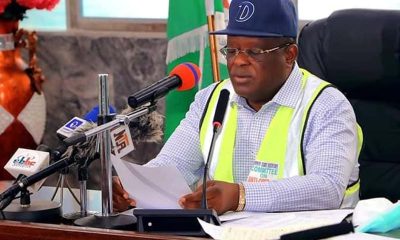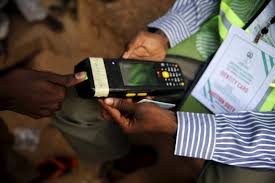With Nigerians still reminiscing over the outcome of the recent elections, the Executive Vice-Chairman, National Agency for Science Engineering Infrastructure (NASENI), Haruna Sani, has said Nigerians have the technical capacity to develop better technology to take care of future elections.
During the just-concluded round of elections, the bulk of the problems encountered by Nigerians in their bid to exercise their civic duty were associated with the poor performance of the card readers deployed by the Independent National Electoral Commission (INEC).
Some of the card readers failed to function at most polling units, as a lot of voters ended up with manual accreditation before voting.
But, the NASENI Executive Secretary said Nigerians in the agency have the technical know-how to develop and produce better technology for more sensitive card readers with the capacity to handle future elections.
“It is high time for Nigeria to undertake local production of card readers’ in-country,” he said.
“If in every election, we rush abroad and purchase card readers and other equipment, we will continue to have these problems. We have all the brains and technical know-how in Nigeria to develop better technology for more sensitive card readers.
“I think the system prefers importation so we can remain as consumers instead of local producers. To the best of my knowledge, across the world everyone tries to develop home grown solutions for election problems,’’ he said.
Mr Sani said going forward, if the right measures were not put in place, the same issues would crop up in the 2023 general elections.
Hence, he said the need for local solution as a way out to the inability to use imported card readers.
With the local technology fully allowed to take over and with electronic voting collation of result, he said it would be less cumbersome, as voters can see their votes counting on screen.
”If INEC wishes, the nation can see the result online and on television. Again, as we are voting, anyone can see it there,” he said.
He said NASENI had demonstrated the technology in the past, adding the device the agency developed would issue PVCs (personal voters’ cards) in two minutes.
“You don’t need to pile voters’ card at the point of registration. With our device, you can carry out all elections by combining the Presidential and National Assembly, Governorship, State House of Assembly, all within three minutes a voter is done.
“I think my personal observation is that some of the INEC ad-hoc staff are not properly trained to operate the card readers. All of a sudden, some staff are replaced by people who were not trained.
“I witnessed someone complaining that the card reader in Sabongida was not working. But, we later discovered the ballot paper had a transparent seal for projection against dust.
“But the operator was ignorant to know the seal has to be removed first before the card reader can read anybody’s thumb,” he said.
Mr Sani said INEC had directed that if the card reader failed to work, there could be manual accreditation to allow voters exercise their franchise without delay.
According to him, the use of card readers would have given the process more credibility as it would have been neater and more satisfying.

 Aviation1 week ago
Aviation1 week ago
 Business6 days ago
Business6 days ago
 Business5 days ago
Business5 days ago
 Education6 days ago
Education6 days ago
 Crime6 days ago
Crime6 days ago
 Business1 week ago
Business1 week ago
 Business6 days ago
Business6 days ago
 Covid-195 days ago
Covid-195 days ago

